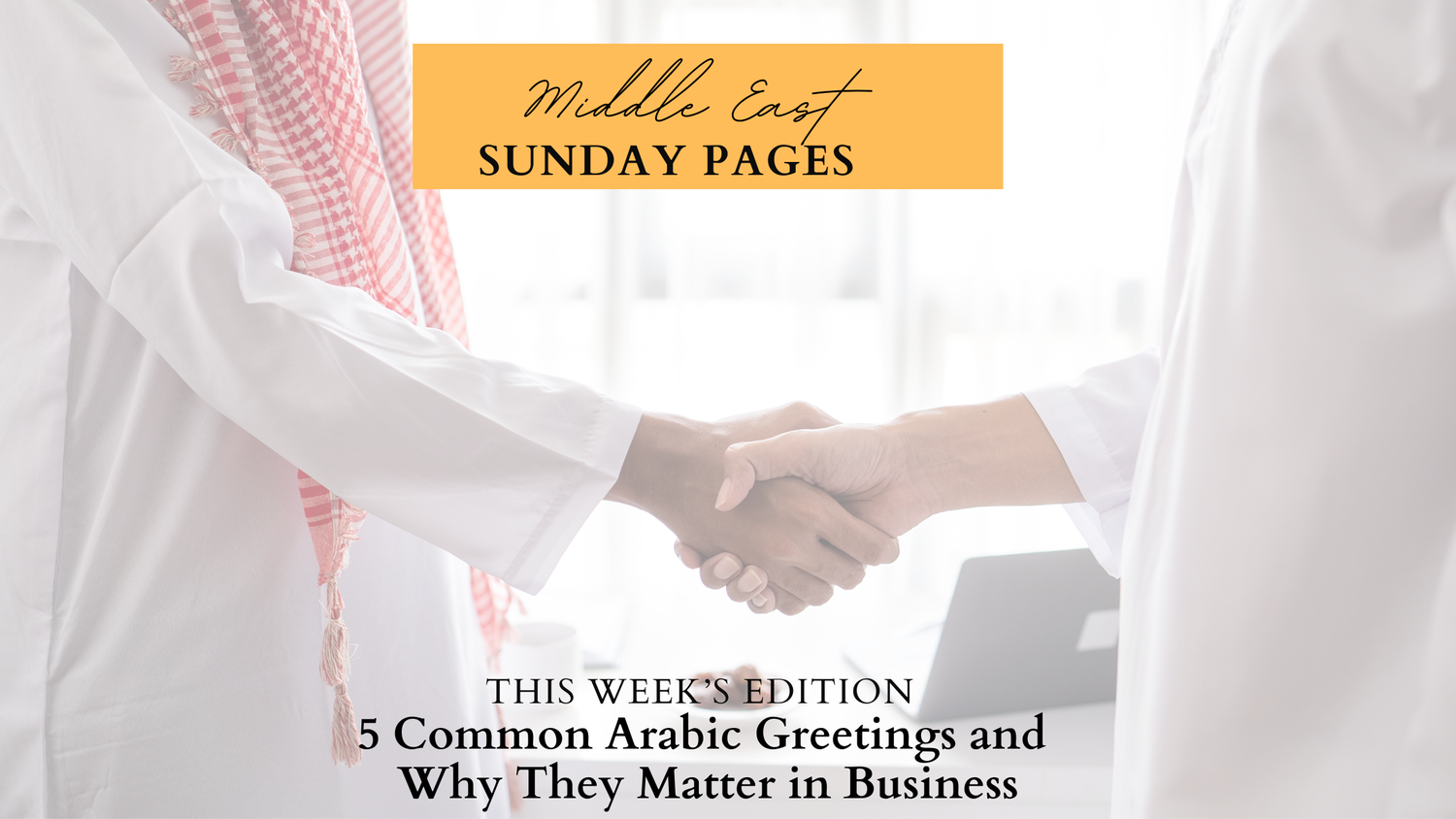
5 Common Arabic Greetings and Why They Matter in Business
In today’s global business world, understanding different cultures is key to success. If you are working with Middle Eastern clients, learning a few Arabic greetings can make a big difference. This post will teach you five common Arabic greetings and explain why it’s so important to learn about cultural differences.
1. As-salaam-alaikum (Peace be upon you)
This is the most common greeting in Arabic-speaking countries. It’s used in both formal and informal situations.
How to use it: Say “As-salaam-alaikum” when you meet someone for the first time or when you are greeting a group. The proper response is “Wa-alaikum-salaam,” which means “And peace be upon you too.”
In business: Use this greeting when you enter a meeting room or when you are introduced to new business partners. It shows respect and cultural awareness.
2. Ahlan (Hello)
This is a friendly, casual greeting that is used in many Arabic-speaking countries.
How to use it: Say “Ahlan” when you’re meeting friends or in less formal business situations. You can also say “Ahlan wa sahlan,” which means “Hello and welcome.”
In business: Use this greeting in more relaxed business settings, like a casual lunch meeting or when you are building a friendly relationship with a client.
3. Sabah al-khair (Good morning)
This greeting is used in the morning, usually until around noon.
How to use it: Say “Sabah al-khair” when you arrive at work or start a morning meeting. The usual response is “Sabah an-noor,” which means “Morning of light.”
In business: Use this greeting in morning meetings or when you are calling a client early in the day. It shows you are aware of the time and you are starting the day positively.
4. Marhaba (Welcome)
This is a warm, welcoming greeting that is used in many Arabic-speaking countries.
How to use it: Say “Marhaba” when you’re welcoming someone to your office or when you want to show hospitality. You can respond with “Marhaba” as well.
In business: Use this greeting when you are hosting Middle Eastern clients at your office or when you want to create a welcoming atmosphere in a meeting.
5. Masaa al-khair (Good evening)
This greeting is used in the evening, usually after sunset.
How to use it: Say “Masaa al-khair” when you are meeting someone or starting a conversation in the evening. The usual response is “Masaa an-noor,” which means “Evening of light.”
In business: Use this greeting for evening meetings or dinner appointments with clients. It shows you’re aware of the time and you are respectful of social norms.
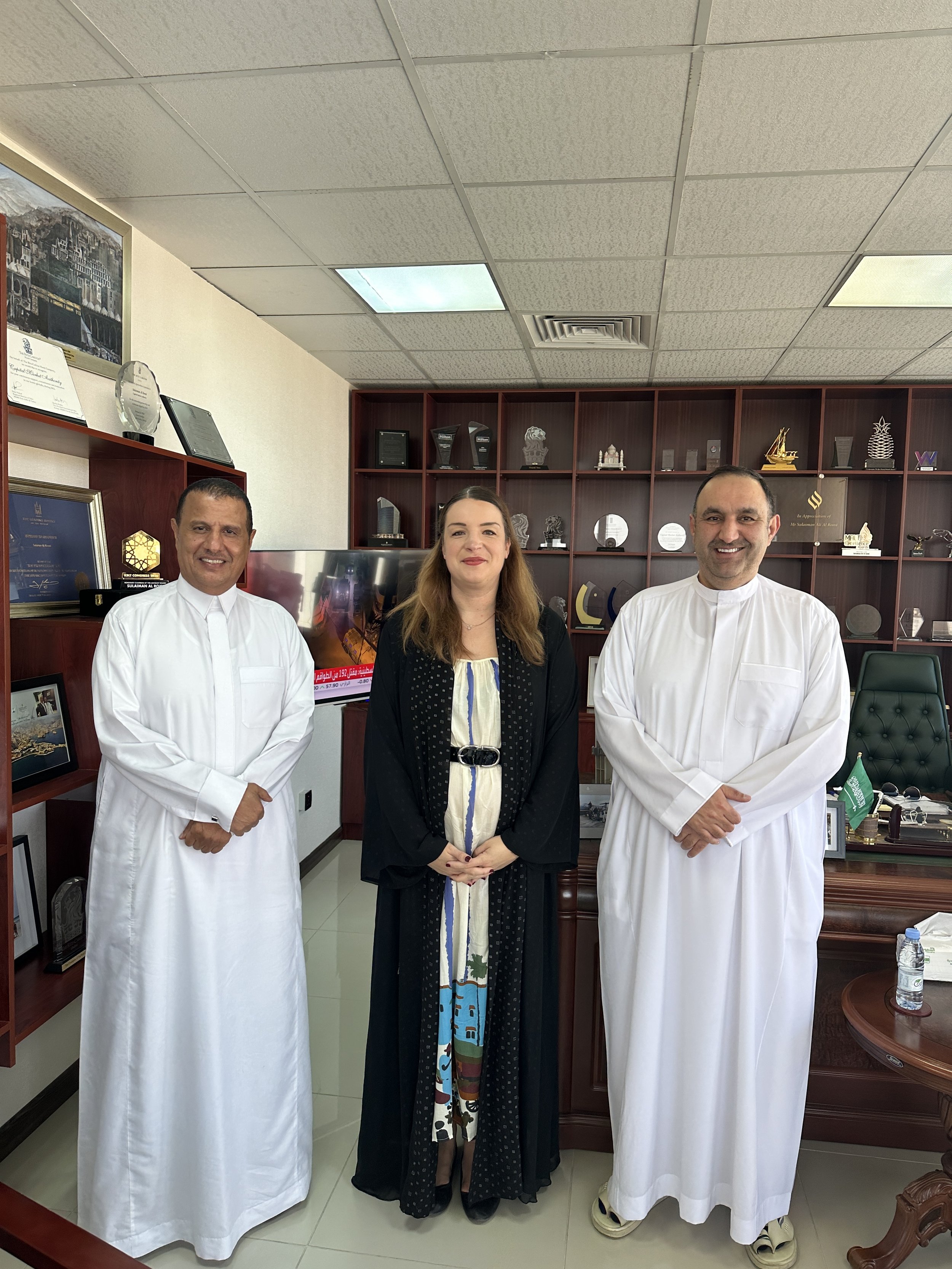
Why Understanding Cultural Differences Matters in Business
Now that we have learned some Arabic greetings, let’s talk about why it is so important to understand cultural differences in business.
It Shows Respect
When you take the time to learn about another culture, you are showing respect. This is especially important in Middle Eastern cultures, where respect and honour play a big role in business relationships. By using Arabic greetings, you are telling your clients that you value their culture and want to build a strong relationship.
It Helps Build Trust
Trust is crucial in any business relationship, but it is especially vital in the Middle East. By making an effort to understand and use Arabic greetings as well as Customs, you are taking the first step in building trust. This will lead to better communication and stronger business partnerships.
It Avoids Misunderstandings
Cultural differences can sometimes lead to misunderstandings. For example, in some Western cultures, it is very common to get straight to business in a meeting. But in Middle Eastern cultures, it is very common to spend time on greetings and small talk first. By preparing yourself you can make a better first impression. We have lots of help available in our Middle East resources.
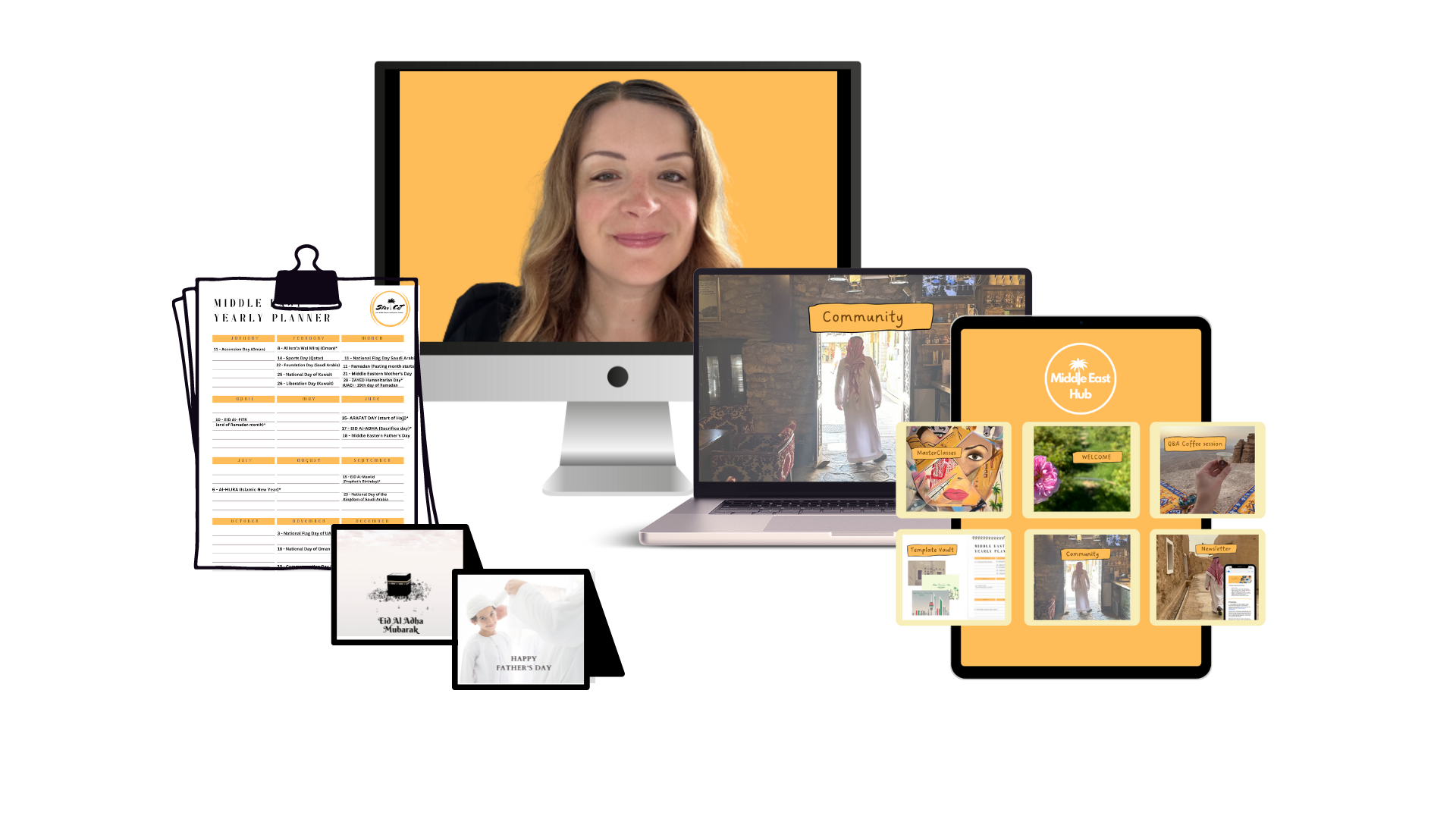
It Opens Doors
Speaking even a few words in Arabic can open doors in business. It can help you stand out from other companies and show that you are serious about working in the Middle East. This extra effort can lead to new opportunities and partnerships. Too many people are walking into new Business Relationships not knowing Etiquette and Culture and sabotage their success from the beginning.
It Improves Communication
When you understand cultural differences, you can communicate better. This is not just about language – it is about understanding body language, tone, and social norms. All of these things can affect how your message is received.
Why You Should Get Help to Understand Cultural Differences
Learning about cultural differences on your own can be challenging. That’s why it’s a good idea to get help. Here’s why:
Cultural Experts can provide insights that you might not find in books or online, especially on Google where there is a lot of information but no one can tell you whether this is correct. They can explain the nuances of greetings and other cultural practices that might not be obvious to outsiders. We have a variety of tools available for you including the Star-CaT Planner for 2025 or the Middle East Trade Show and Conference Calendar.
Cultures can change over time so it is key to get Up-to-Date Information. But we also understand that everyone learns differently and various paces.
One of the biggest challenges many of our students have experienced is Confidence. This can make a big difference when you are actually in a business situation with Middle Eastern clients so it makes sense to be prepared.
Learning Arabic greetings and understanding Middle Eastern business culture takes time and effort. But it’s an investment that can pay off in stronger business relationships and new opportunities. By showing respect for the culture and making an effort to communicate in a culturally appropriate way, you can stand out in the global business world.
Remember, it is okay to make mistakes as you are learning. Most people appreciate the effort you are making to understand their culture. So start with these five greetings, and don’t be afraid to ask for help as you continue learning about Middle Eastern business culture. Your efforts will be noticed and appreciated by your Arabic-speaking business partners.

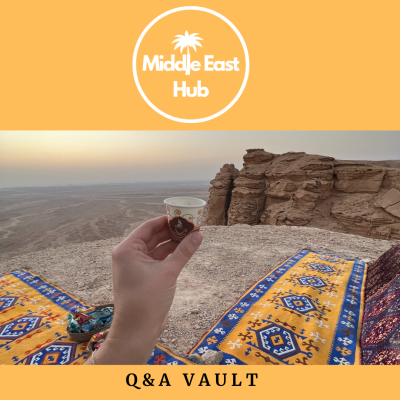
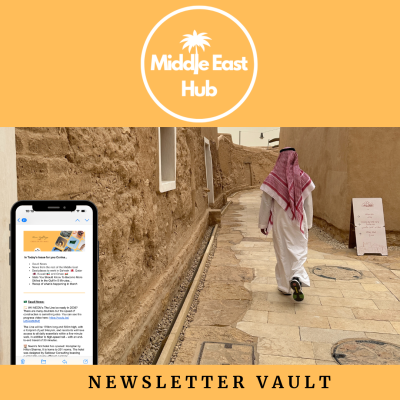


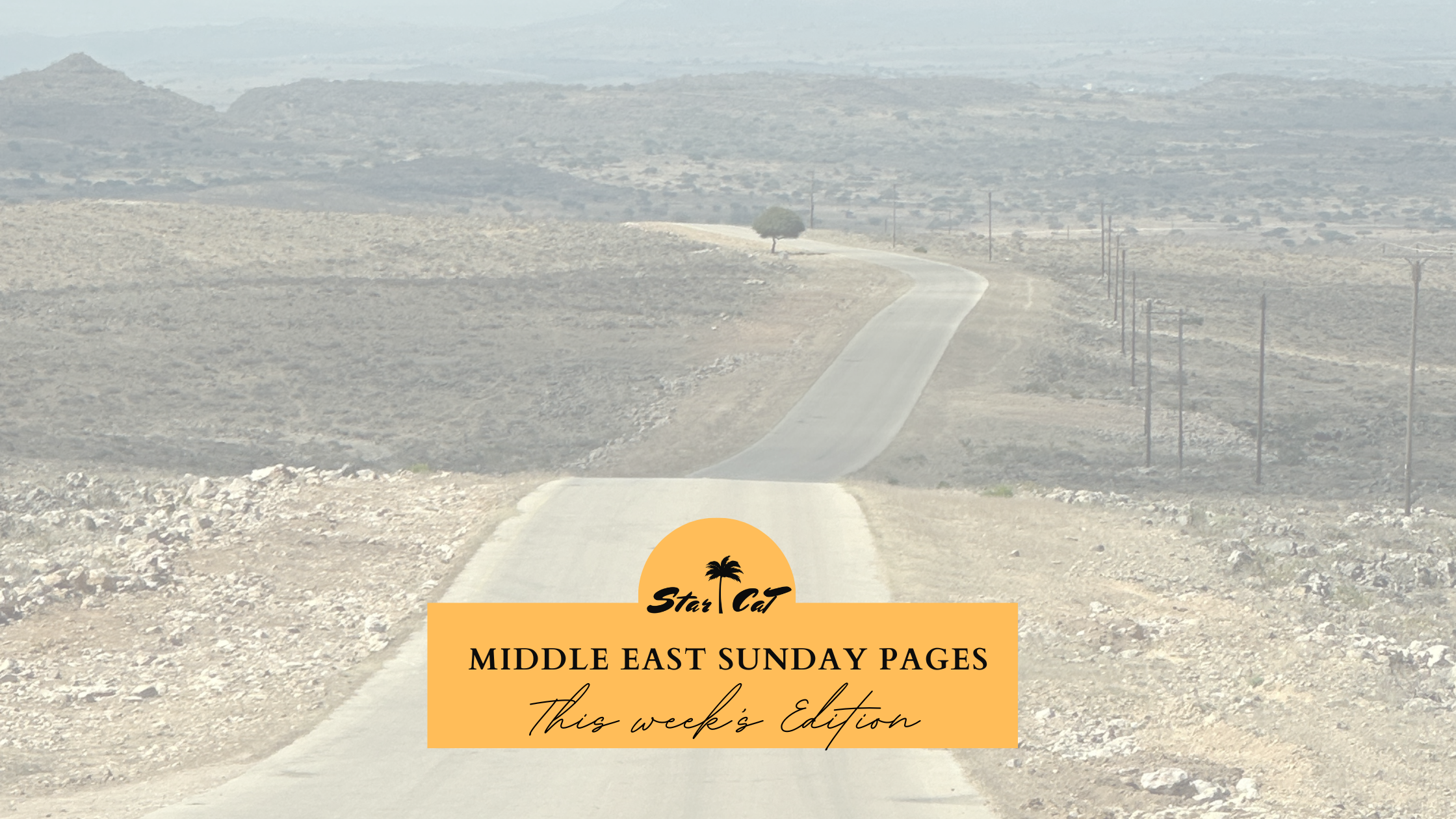
This Post Has 0 Comments